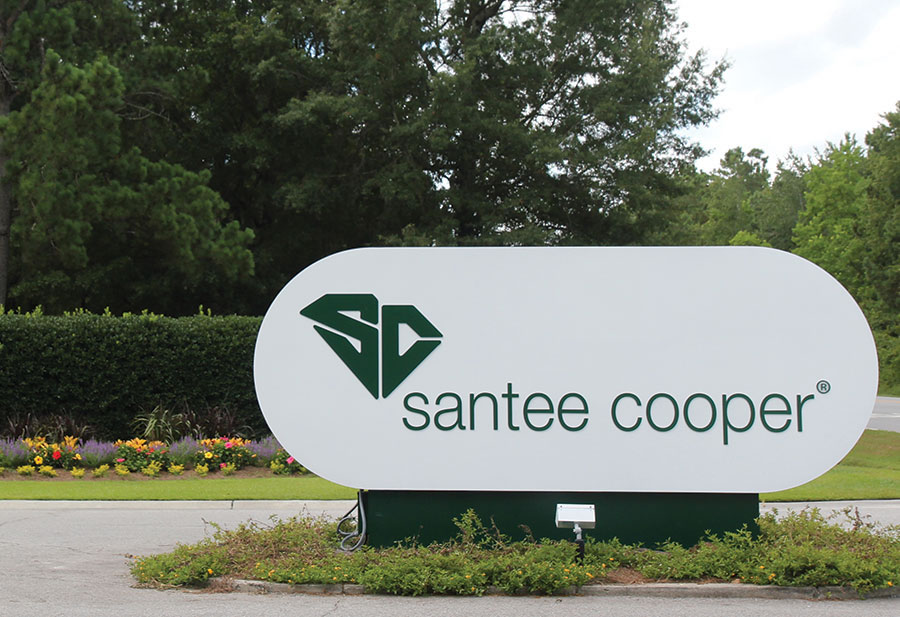
By Lindsay Street, Statehouse correspondent | It’s being billed as the decision that could ripple through decades if not the century: Should the state sell, change the management structure or simply reform its public power utility, Santee Cooper?
The decision is expected to be made this session.
“We’ve got one opportunity to get this right and this decision we will make this session will affect South Carolina, if not for decades, then centuries to come,” House Ways and Means Chairman Murrell Smith of Sumter said. “It’s very important we get this right and we look at it objectively and critically.”
The Moncks Corner-based utility is massive. It provides power to nearly 2 million customers in every county in the state. It employs more than 1,650 people. In addition to generating, transmitting and selling power, the utility also manages lakes and two water systems, and works in economic development deals.
But it found itself in trouble in 2017. Santee Cooper owned 45 percent of a construction project at V.C. Summer that sought to build the next generation of nuclear power generators. After a decade and $9 billion spent between the two utilities, Santee Cooper pulled the plug on the project, leading its partner South Carolina Electric and Gas to do the same. The private utility was sold to Dominion Energy in the fallout, and the discussion of what to do with Santee Cooper began in the legislature.
A sale or structural change could affect taxpayers, ratepayers and the direction of energy generation in the state, experts say.
The timeline
On Jan. 15, S.C. Department of Administration is required by law to submit a report detailing bids for reforming, managing or privatizing Santee Cooper. Lawmakers passed H. 4287 in May outlining the process. The agency began accepting bids in August. Reportedly, there are multiple bids. In 2019, Nextera Energy of Florida and Duke Energy of North Carolina sought to purchase the utility. Dominion Energy previously expressed a desire to manage it.
- Related: Dominion Energy has agreed to pay $192.5 million to settle investor lawsuits stemming from the failed V.C. Summer nuclear project. Read more.
Santee Cooper CEO Mark Bonsall confirmed this week that the utility has submitted a reform plan to the Department of Administration.
“We are going to be suggesting a number of governance reforms,” Bonsall said of the report that should be made public Jan. 15. “I truly feel we have put together the best plan we could.”
The agency can request a 60-day extension, but as of Statehouse Report’s deadline, no such request has been made. An effort was made to confirm that no extension would be sought, but Department of Administration media liaison Kelly Coakley did not respond to an email sent to her Monday, nor a phone message left at her office Thursday.
After receiving the report, the House Ways and Means Committee and the Senate Finance Committee are required to issue recommendations based on that report within 30 days.
Then the bodies will take up a resolution that would approve a sale or management change, or implement reform at the utility.
Beyond philosophy
How lawmakers arrive to their decision will be based on a number of factors. Many told Statehouse Report they will make the decision based mostly on how any move affects ratepayers and taxpayers.

S.C. Senate Majority Leader Shane Massey of Edgefield said he will be looking at the numbers.
“Philosophically, I don’t think the state ought to be in the utility business but the problem is we are and we’ve been in the utility business for over 80 years now, you can’t just snap your fingers and say, ‘OK now let’s get out.’ There are a lot of other considerations,” he said, adding he was going to look at rates, energy generation and debt in the coming report.
Moncks Corner Republican Rep. Sylleste Davis, who formerly worked for Santee Cooper, said she will look at the numbers despite her strong feelings that Santee Cooper should remain public.
“I think what’s important for legislators to look at is the information, the forecasted rates, because that, ultimately, is how we best protect the ratepayer, right, by ensuring they have the lowest rates possible,” Davis said.

“Santee Cooper, at the end of the day, will have the ability to pass along the lowest cost to the ratepayer because of their ability to borrow money at a lower rate. They don’t have shareholders to satisfy. They aren’t working for a profit margin. Their sole purpose is to have low cost high reliability.”
Smith said he is keeping an open mind.
“I’m going to follow the facts … Everyone needs to look at this without any prior determinations made,” Smith said. “We’ve got to make sure that the rates are stable, that we are not trading temporary gain for long term sacrifice.”
Smith floated having additional advisors work with lawmakers as they make the decision.
“I don’t know what that means yet. Are there attorneys that can help us? We’ve got a lot of staff members who have been involved in this process for years now,” he said. “We need some good solid advice and … these are not issues we routinely deal with in the General Assembly.”
- Have a comment? Send to: feedback@statehousereport.com















 We Can Do Better, South Carolina!
We Can Do Better, South Carolina!
Pingback: Charleston Currents – 1/13: MLK events; Finish job on 4K education; Comedy fest
Pingback: Charleston Currents – NEWS BRIEFS: General Assembly to reconvene Tuesday
Pingback: MLK events; Finish job on 4K education; Comedy fest - Zone
Pingback: 1/13: MLK events; Finish job on 4K education; Comedy fest – Charleston Currents – Super Black Goals
Santee-Cooper is the ratepayers’ lever to rate gouging by corporate behemoths. PSC has been shown too many times to be incapable of fulfilling its role to serve the public interest.